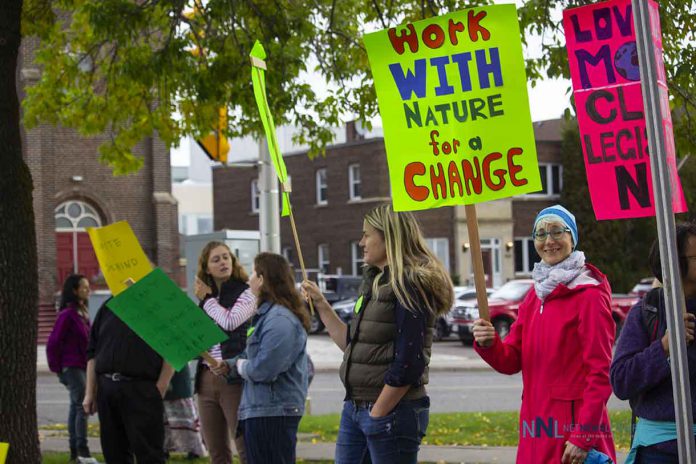THUNDER BAY – CLIMATE – A recent article published in ScienceDirect highlights the emotions and anxiety felt by young Canadians in relation to climate change. Conducted by Dr. Lindsay Galway, Associate Professor in the Department of Health Sciences at Lakehead Thunder Bay, and Dr. Ellen Field, Assistant Professor in Education at Lakehead Orillia, the study surveyed a thousand Canadians aged between 16 and 25.
The results of the survey are revealing. Almost half of the respondents (48%) believe that humanity is doomed, while 73% find the future frightening. Seventy-six percent of the respondents felt that people have failed to take care of the planet, and 39% are hesitant to have children because of the current state of the planet. Moreover, 71% of respondents felt angry about the Canadian government’s response to climate change, while 69% felt abandoned.
In terms of education, six in ten young people believe that the formal education system should do more to teach them about climate change. Additionally, 78% of respondents reported that climate change impacts their overall mental health, and four in ten Canadians said their feelings about climate change negatively affect their daily life.
Despite the negative emotions and anxiety, there is still hope among young Canadians. Seventy-one percent of respondents believe that together, something can be done to slow down global warming. Half of these young Canadians believe they can contribute to this effort.
“This research shows that inaction at the systemic and structural levels shapes the experiences of climate emotions and anxiety among young people across Canada,” said Dr. Galway. “While we consider difficult climate emotions and anxiety appropriate responses to the climate crisis, given its impacts, scale, and urgency, we also recognize the mental and emotional burden that young people are bearing. To address these issues, there needs to be strong leadership, as well as supports and programs put in place to enable young people to cope with climate-related distress, foster emotional resiliency, and prevent harm. Most importantly, to protect the mental and emotional health of young people, transformative climate action is needed,” she added.
The researchers wanted to replicate the Hickman et al. 2021 study on youth climate anxiety to collect Canadian data, and they also asked young people to identify coping supports that they think are needed. Responses to the survey showed a diversity of strategies, including the need for youth-focused support groups, more opportunities for young people to engage in climate action, and improving climate change education in schools.
The researchers thanked the Social Sciences and Humanities Research Council and the Canada Research Chair program for supporting their work.







